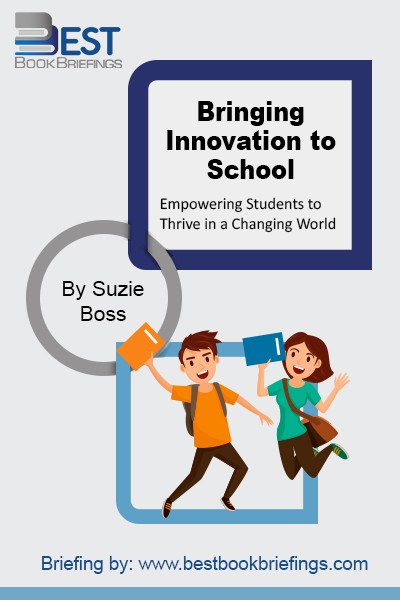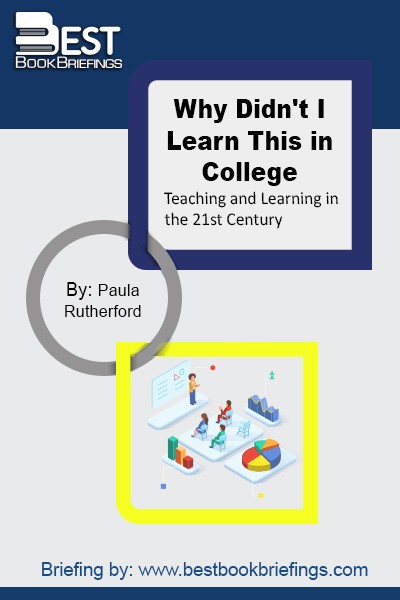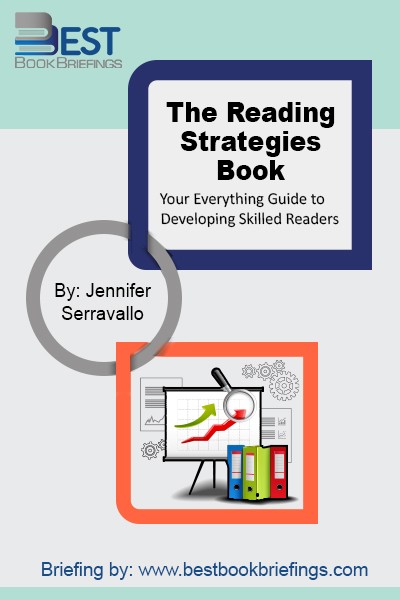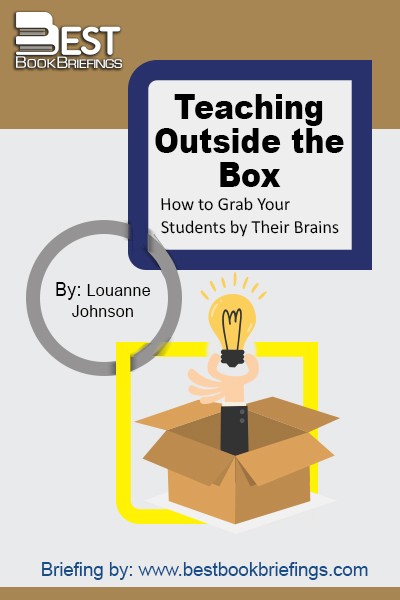Teaching Outside the Box
How to Grab Your Students by Their Brains
Editorial Review
From seating plans to Shakespeare, Teaching Outside the Box offers practical strategies that will help both new teachers and seasoned veterans create dynamic classroom environments where students enjoy learning and teachers enjoy teaching. This indispensable book is filled with no-nonsense advice, checklists, and handouts as well as a step-by-step plan to make the first week of school a success; approaches for creating a positive discipline plan; methods for motivating students, especially reluctant readers; strategies for successful classroom management; and suggestions for creating and grading student portfolios.
Book Reviews
Books on Related Topics

The first step in teaching students to innovate is making sure that educators have opportunities to be innovators themselves. Although some teachers attempt this hard work alone, the culture of a school or district can set the stage for innovation to flourish or flounder. The right conditions include a shared vision

The Wild Card is your step-by-step guide to experiencing a creative breakthrough in your classroom with your students. Wade and Hope King show you how to draw on your authentic self—your past experiences, personality quirks, interests, hobbies, and strengths—to deliver your content creatively. Whether you are a high school teacher or

Teaching at its best can be a generative act, one of the ways in which human beings try to cheat death by giving witness to the next generation so that what we have learned in our own lives doesn’t die with us. At its core, a college should be a place

This title is in no way meant to condemn those who direct our collegiate experiences. The realities are that we may well have studied these topics and earned a good grade on a test over the theoretical aspects of this information but had no classroom experience on which to hook the

Online learning has improved dramatically since its arrival. Online content is becoming more engaging. And most students now have an internet device within reach, whether as a laptop, a tablet, or a mobile smartphone. Furthermore, an increasing number of students are experiencing online learning while continuing to attend their traditional brick-and-mortar

When and where have you been a part of a culture of thinking? That is, when have you been in a place where the group’s collective thinking as well as each individual’s thinking was valued, visible, and actively promoted as part of the regular day-to-day experience of all group members? Over

Engaged readers are often motivated to read, strategic in their approaches to comprehending what they read, knowledgeable in their construction of meaning from text, and socially interactive while reading. Sometimes to help readers with the goal of engagement, you actually need to work on comprehension.

Waldorf education aims at enabling students as fully as possible to choose and to realize their individual path through life as adults, and stresses to teachers that the best way to provide meaningful support for the child is to fully comprehend the phases of child development and to bring “age-appropriate” content

Our K–12 school system is an artificial product of market forces. It isn’t a good fit for all-or even most-students. It prioritizes a single way of understanding the world over all others, pushes children into a rigid set of grades with little regard for individual maturity, and slaps “disability” labels over



